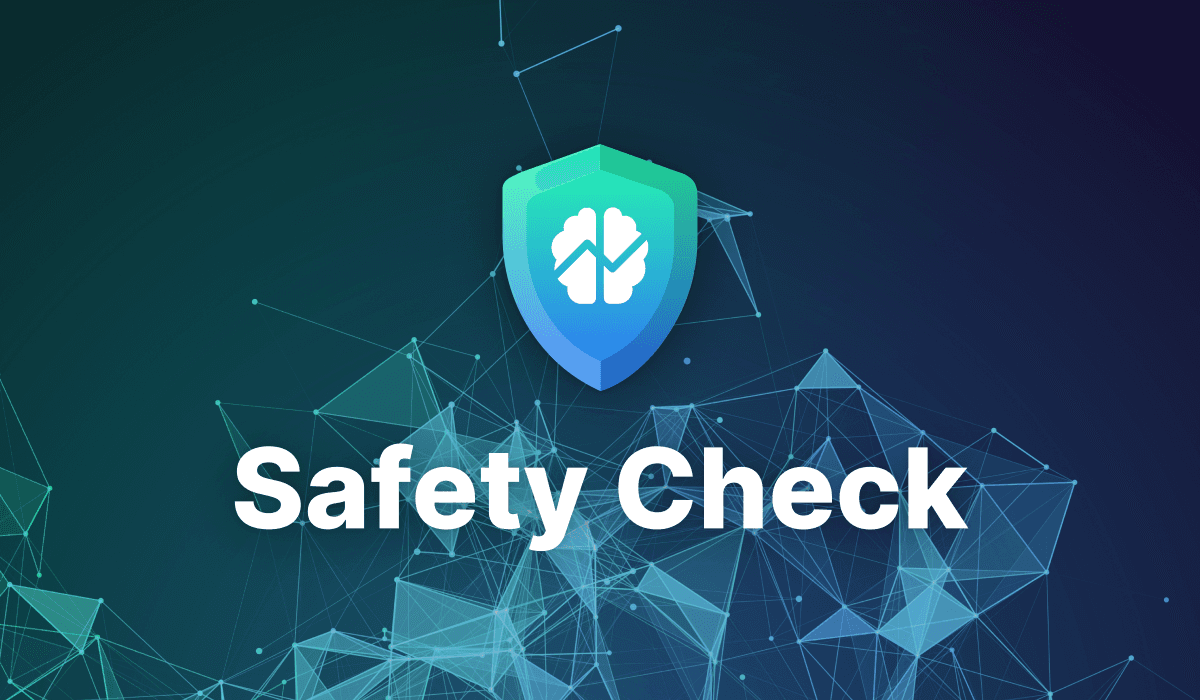Investing in a new crypto? You need to see our safety analysis first!

The crypto ecosystem promises great opportunities, but can also be dangerous. To stay safe, use our Safety Check to get basic information and an overview of common crypto token scams.
Web 3.0 is a rapidly developing niche that is becoming increasingly dangerous. Crypto tokens are often issued by new and untested projects with little to no regulatory oversight, making it too easy for scammers to take advantage of unsuspecting investors. It is important to take the time to do your own research and verify the authenticity of the project and token before investing.
In collaboration with GoPlus Security, we’ve created a Safety Check to give you basic information and an overview of the most common scams associated with crypto tokens.
While our Safety Check will give you a general idea of the legitimacy of a token, it’s important to note that even if a token passes our basic safety check, it still might be a scam.
The Safety Check looks for certain features of the token contracts which are often related to scammy practices. Let’s take a look at them one by one!
Honeypot
A honeypot contract contains malicious code that allows only the contract owners' wallets to withdraw from the coin liquidity pool. The buy/sell tax represents how much funds are automatically redistributed when making a transaction. Deflationary tokens usually have a tax of around 10%, and taxes higher than 50% or modifiable taxes are suspicious. It’s important to check with the project team for more information.
Read more about the honeypot scam in our dictionary.
Pausable Transfers
A pausable transfer allows the token owners to stop trades anytime. This feature is often used during token ICOs or as an emergency stop in case of a serious bug. Again, it’s important to check with the project team for more information.
Creator owns >5% liquidity
It means that the creators have significant control over the token's price and liquidity. If the creator decides to sell their tokens in a large volume, it could lead to a sudden drop in the token's value.
It can be a sign of a lack of decentralization and potential centralization of power in the hands of a single entity, which goes against the principles of blockchain technology.
It's important to note that owning more than 5% of the liquidity by itself doesn't necessarily mean that the project is a scam or that the token will fail, and it should be considered in conjunction with other factors when evaluating a token.
Proxy Contract
A proxy contract relays all calls to another smart contract, which is called an implementation contract. Contract features can be changed by simply changing the implementation contract.
A proxy contract can potentially be a problem if it is used to change the contract's features without the knowledge or consent of the token holders. If the proxy contract is not transparent and doesn't clearly indicate the current implementation contract, it can allow the contract owner to make changes to the token's functionality or behaviour without notifying the token holders or obtaining their approval.
This can result in the loss of funds or the token's value if the contract owner changes its features in a way that is unfavourable to the token holders.
Not all proxy contracts are bad! If the contract is designed in a transparent and secure manner, it can also have valid use cases, such as enabling upgrades or bug fixes to the token's contract while maintaining the same address and contract interface.
Airdrop Scam
Airdrop scams are popular and users should be extremely careful. In these scams, users are airdropped malicious tokens and then while attempting to manipulate the token, their wallet is drained.
While there are some airdrop scams, there are also legitimate airdrops that can be a great way to receive free tokens from new projects. It's important to verify the authenticity of the airdrop and the project behind it before participating, as there are still risks involved.
Read more about Airdrops in our dictionary.
Blacklist Included
This function allows the contract owner to prohibit any address from trading the coin by adding them to a blacklist, preventing them from further trading.
If the contract owner has the power to add or remove addresses from the blacklist without providing any justification or explanation, it can lead to a lack of transparency and accountability. It's often used by scammers to prevent certain users with large holdings from selling it.
Conclusion
Protect your investments by taking the time to use our Safety Check! It will give you an overview of the most common scams associated with crypto tokens and help you verify the authenticity of the project and token before investing.
Don't risk your money - Do Your Own Research & use our Safety Check!


